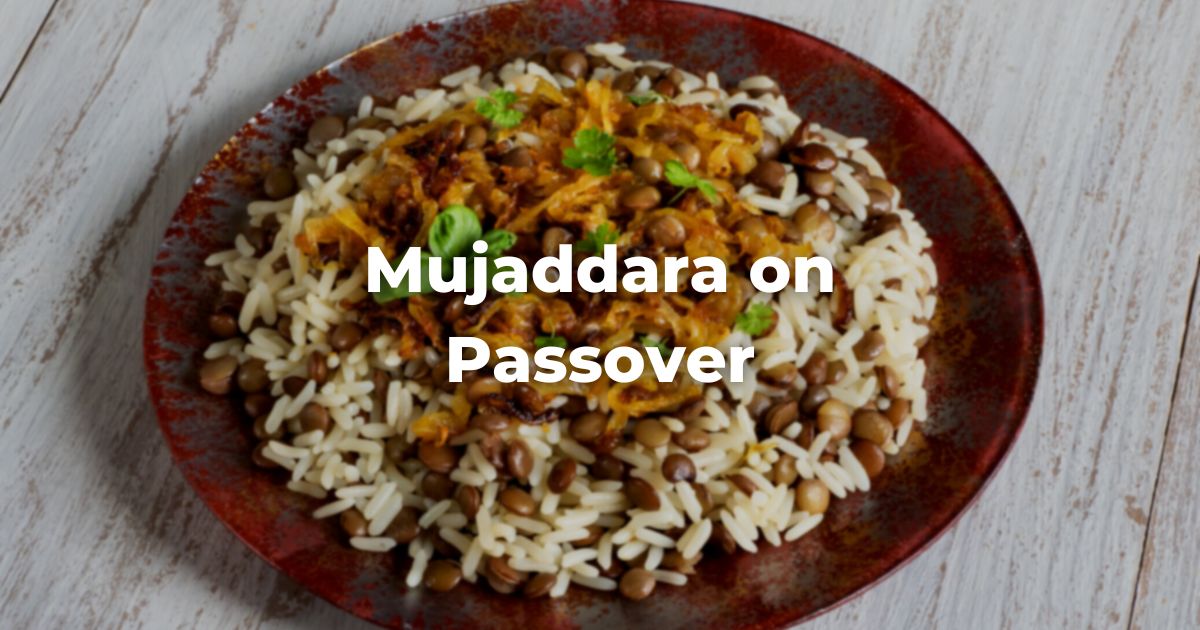Or, how my family explores custom and culture through cuisine.
Oddly enough, growing up, one of my favorite things about Passover was the food. From squash kugel at dinner to her special kosher-for-passover blueberry muffins and smoothies, my mom had Passover cooking down to a science.
She’d found about ten dishes that
a) passed all the Ashkenazi chametz and kitniyot restrictions and
b) weren’t disgusting–in fact they were delicious.
Each year, she referred to her spreadsheet (because science) of the exact ingredients to buy and then she would make those same dishes once a year every year.
No matter how much we begged for the mandarin orange farfalle or the apple cake during the year, she wouldn’t make it. She’d say, “If I make it all the time, you’ll get bored of it before Passover.” And we never tested the theory.
All was going well. And then I started dating my now wife–a Sefardi rabbi who is (gasp!) vegan.
Suddenly, my mother’s carefully calculated trays of eggs were thrown into chaos.
My mother’s love language is cooking and so the only way she saw forward would be to recalibrate portions of each of her kugels to be made with aquafaba (after we explained that kitniyot wouldn’t “unkasher” my mother’s Passover dishes).
And it would all be mixed in, no morat eyin, no big deal. This was in the BLRT era a.k.a. before the Levin and Reisner teshuva that permitted all Jews to eat kitniyot on Pesach.
(Read the Exploring Judaism piece on Kitniyot for a summary.)
My mother also invited us to bring a main dish that my wife (to-be) could eat. And because we are just those nudniks, we showed up with a gigantic tray of mujaddara: rice and beans with fried onions.
Now, did my wife’s family, heiring from the Iberian Peninsula, historically eat mujaddara on Passover?
The answer ranges from we will never know to probably not. Basically the only Sefardi customs her family passed down since fleeing the Inquisition was the knowledge that they were Sefardi and their last name–based on the Portuguese word for flag, bandiera. And mujaddara, while a very popular dish in the Muslim world, is more of a comfort food than a festive meal.
But, like I said, we are nudniks.
My mother didn’t have any mujaddara that year (though she sure flashed us her best-exasperated smile). And the mujaddara turned out to be quite seder appropriate in that it provoked questions from all the other Ashkenazi guests who, like many American Jews, were not familiar with Sefardi custom.
About five years later, the teshuva came out, and we received a very excited phone call from my mother. That year she would be eating mujaddara at the seder too.
And while mujaddara may have started as an affront to my mother’s Passover traditions, it turned out that we adopted one of her traditions as well. Because ever since, we’ve only made mujaddara on Passover.
The recipe we use (translated/adopted from Nawal Abu-Ghoch’s Arab Israeli Cooking):
2 cups whole green lentils
2 cups short-grain white rice
1 tsp salt
¼ tsp cumin
¼ tsp cinnamon
¼ tsp ground black pepper
2 large onions cut into rings
4 T corn oil
6 cups boiling water
1) In a large pot, cook the lentils with the spices and salt for 30 minutes on medium heat.
2) Add the rice, cover, and continue cooking for another 15 minutes.
3) In a separate pan, fry the onion in the oil until brown.
4) Pour the rice and beans into a serving bowl and top with onions. Serve warm.
Author
-

Emily Jaeger is a poet and professional writer based in Wilmington, North Carolina. Her work has appeared in Insider, News Courier, and JTA among others. https://emilyjaeger.com/
View all posts






